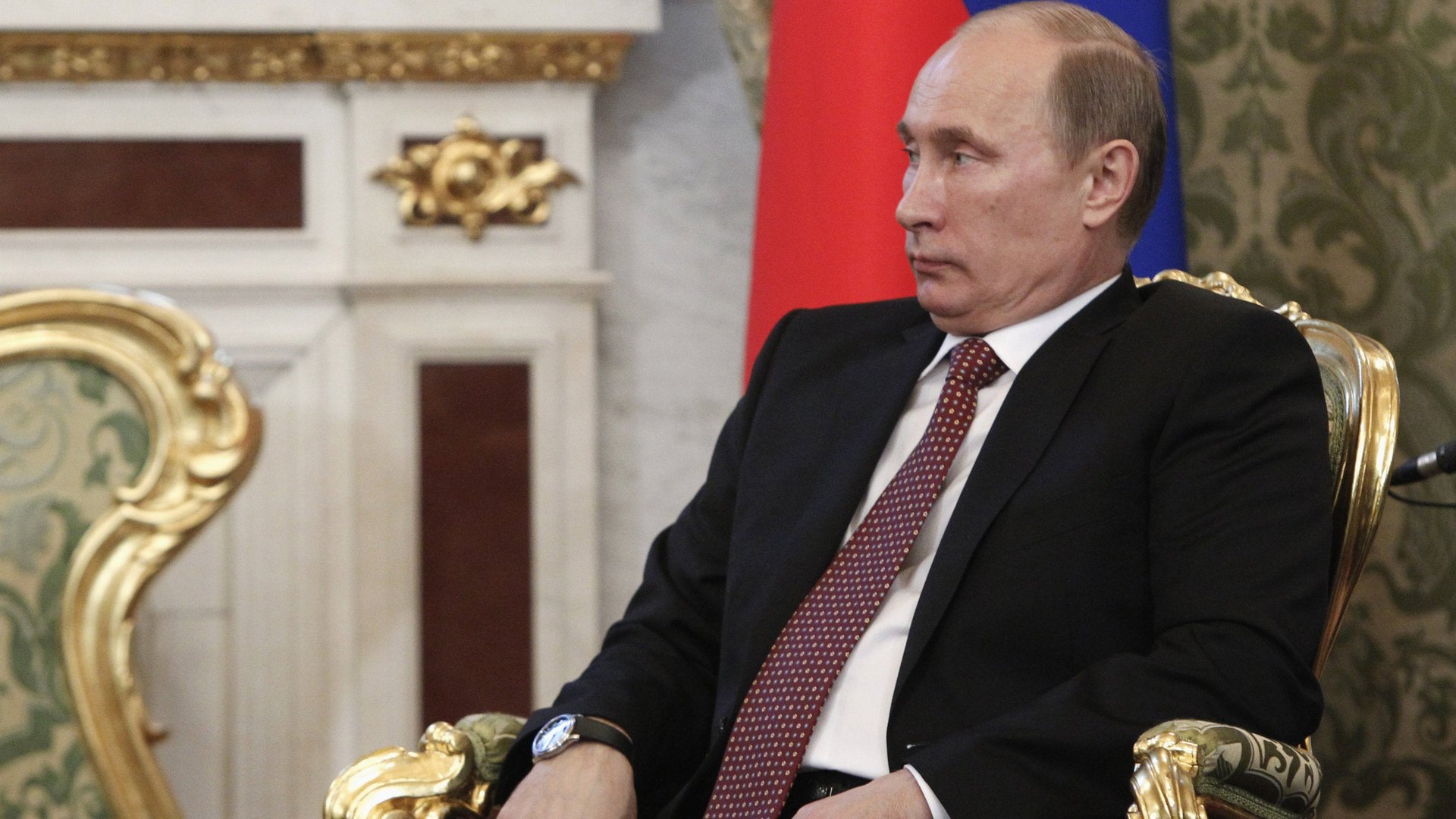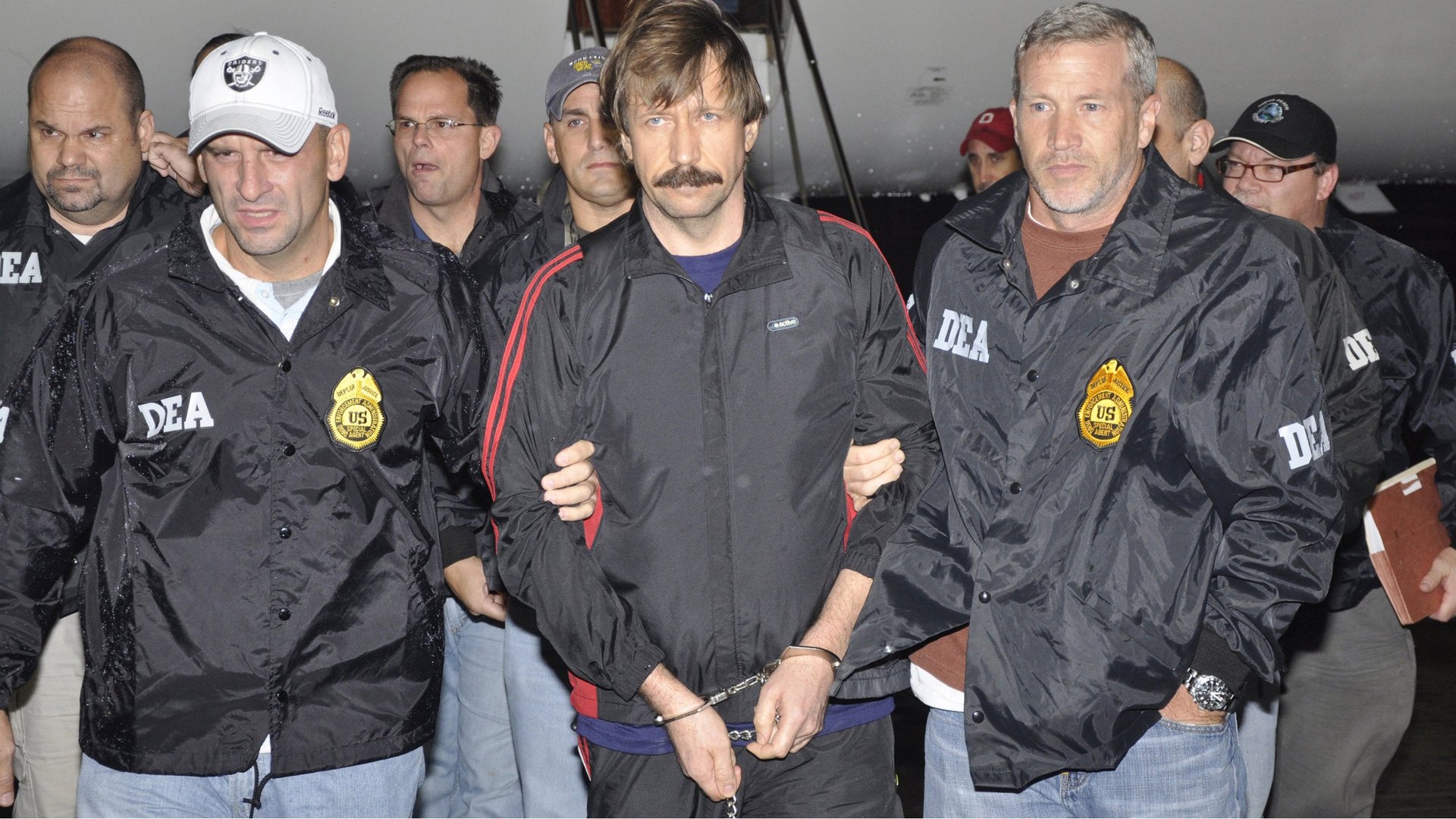Snowden’s latest problem is that Putin despises turncoats
Given Russian president Vladimir Putin’s regular tirades against the US, you would think he’d be thrilled to be hosting Edward Snowden, the fugitive US intelligence contractor who on July 16 officially requested Russian asylum. But at least publicly, Putin is restraining himself in this opportunity to goad Washington. Instead, he says he prefers that the American leave Moscow as soon as possible.


Given Russian president Vladimir Putin’s regular tirades against the US, you would think he’d be thrilled to be hosting Edward Snowden, the fugitive US intelligence contractor who on July 16 officially requested Russian asylum. But at least publicly, Putin is restraining himself in this opportunity to goad Washington. Instead, he says he prefers that the American leave Moscow as soon as possible.
Why the cold shoulder? It’s partly about optics. In September, Putin is hosting US president Barack Obama for a state summit that could be seriously undermined if Washington perceived the Russian leader as aiding an accused US traitor.
But on a deeper level, Putin’s own sensibilities run contrary to Snowden’s. Himself a former spy, Putin prizes loyalty and regards intelligence work as inherently patriotic. As head of Russian intelligence in the late 1990s, Putin rejected internal whistleblowers—most famously KGB defector Alexander Litvinenko, who in 2006 was murdered in London with a nuclear isotope whose trail led back to Russia.
So while he is probably enjoying Obama’s discomfort, Putin is more likely to sympathize with US spy agencies than with Snowden, who has been disclosing secrets stolen from the US National Security Agency.
“Snowden is not a natural soulmate for Putin,” says Mark Galeotti, head of NYU’s Center for Global Affairs, who specializes in Russian intelligence and crime and blogs at In Moscow’s Shadow. “For Putin, Snowden at best would fall into the category of what Lenin called ‘a useful idiot.’ It’s great to have him around saying that Russia is wonderful, but it doesn’t mean that you respect him in any way.”
Snowden talked, and Washington threw a fit

Putin has surprised even himself by his reaction to Snowden’s June 23 arrival from Hong Kong. When asked a week later whether the 30-year-old American was welcome to stay in Russia, Putin responded, “There is one condition if he wants to remain here: He must stop his work aimed at damaging our American partners. As odd as it may sound from me.”
But do not misunderstand Putin. He admonished Snowden to tone down, but that does not exclude he himself having some fun at the Americans’ expense. On the afternoon of July 12, for example, Obama was scheduled to hold a phone call with the Russian leader. But a few hours prior, Snowden held an hour-long meeting at Sheremetyevo Airport with international and local human rights activists—an event organized and manned by Russian authorities. Holed up in the airport since his arrival, Snowden requested help obtaining temporary asylum in Russia while plotting a secure route to permanent refuge in Latin America, where three countries have offered him sanctuary.
In separate news conferences, senior spokespeople from the White House and the US State Department lashed out at Moscow. “We would urge the Russian government to afford human rights organizations the ability to do their work in Russia throughout Russia. Not just at the Moscow transit lounge,” White House spokesman Jay Carney told reporters.
Carney’s language—a reference to an ongoing political crackdown by Putin—was risky given the Russian leader’s notorious prickliness. But Putin had no publicly perceptible reaction. He proceeded with the call with Obama, and then reverted to his circumspect posture.
Yet the Russian hilarity continued. On July 14, Snowden’s confidante-defender, Glenn Greenwald, said he had just been told by the fugitive–who is presumably under tight Russian surveillance–that he possesses the equivalent of a manual for the NSA’s structure and operations that would allow anyone to foil its work.
“Snowden has enough information to cause more damage to the US government in a minute alone than anyone else has ever had in the history of the United States,” the florid Greenwald told a reporter. Greenwald said,
The US government should be on its knees every day begging that nothing happen to Snowden, because if something does happen to him, all the information will be revealed and it could be its worst nightmare.
This time, the White House did not rise to the teasing.
Snowden still poses a potential threat to the US
It is possible that, even if Greenwald or Snowden is exaggerating about what he has, such secrets have already been copied from Snowden’s laptops by either or both China and Russia, with or without his knowledge. Boris Volodarsky, a former Russian military intelligence officer and author of The KGB’s Poison Factory, told Quartz that Russian security services have likely been talking with Snowden.
“In exchange for help and protection, they would squeeze everything from him,” Volodarsky said.
Others doubt that Putin has ordered such direct action. But given these risks, the NSA has all-but certainly already launched an intensive effort to remake these systems.
For the US, that leaves the task of containing Snowden. Toward that aim, the best outcome for Washington would be that Snowden simply remains where he is: in a transit hotel at Sheremetyevo Airport. That is, he does not receive political asylum in Russia; slip out of the airport to refuge, say, in the Ecuadoran or Venezuelan embassy; or gain permission to fly to Latin America, where Bolivia, Nicaragua and Venezuela have offered him sanctuary. The second-best outcome would be that he obtains Russian asylum, but is kept more or less quiet by the country’s security services.
For now at least, Putin seems inclined to play along. ”If you’ve been running a large state apparatus for a dozen years, and fending off popular protests for the last two, your sympathies–whatever your background–aren’t going to be with those who challenge authority,” said Stephen Sestanovich, former ambassador-at-large for the former Soviet Union.
Perhaps an international arms trafficker would do the trick?

Putin has steadfastly asserted that he will not give up Snowden to the US–and notwithstanding his current self-control, there is no reason to disbelieve him. For one thing, he benefits before his domestic audience by keeping the US on tenterhooks.
Yet is there nothing that would entice Putin to push out Snowden into American hands? Nothing that Putin truly wants?
The answer is yes—Viktor Bout, a legendary global arms trafficker. Moscow bitterly complained last year when Bout, a former Soviet military translator, was sentenced to 25 years in US prison for conspiring to arm the Revolutionary Armed Forces of Colombia, the rebel group better known as FARC. Last year, Moscow officially requested Bout’s extradition.
“Bout is the coin that the US could use to buy Snowden,” Galeotti told Quartz.
William Courtney, a former US ambassador, said that a handover of Bout, while satisfying Putin, “would rightly cause a furor in the US, especially in law enforcement and judicial circles.”
Courtney is right—a Snowden-Bout exchange, reminiscent of the spy-for-spy exchanges of the Cold War, seems highly unlikely. Still, the entire affair has been marked by improbabilities. For now, Putin will mull cooly over the opportunity in his hands. “Snowden is a chip on the board,” Galeotti said. “A playing piece.”